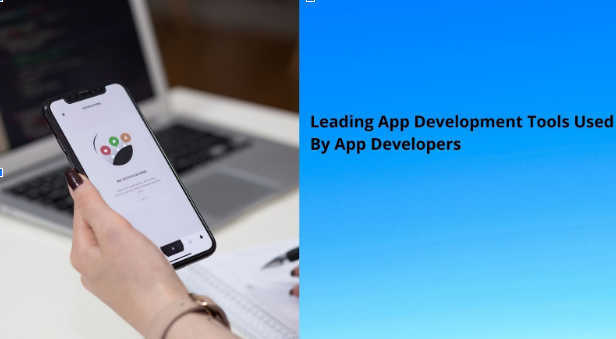Leading App Development Tools Used by App Developers

There’s a mobile app for almost everything in life and hence building an app is now synonymous with the digital presence of a business. Moreover, since app development no longer remains a complex science, businesses find app development a natural step for their branding and marketing exercise.
For mobile app development, there are too many great tools out there. For app developers, the range of options is wide including cross-platform development frameworks to “build once & run everywhere” hybrid tools to “do it yourself” no-code tools. Considering such a wide range of choices, here we are going to provide a shortlist of leading app development tools that most developers prefer for their projects.
React Native
Developed and supported by Facebook, React Native comes as a unique cross-platform mobile app development framework that allows reusing maximum code across both Android and iOS platforms. On the other hand, React Native allows creating platform-specific native UI
components to ensure a smooth native user experience.
Some of the key strengths of React Native include the following.
- Modular, component-based development approach.
- Up to 85% code reusability for faster development.
- Hot Reload feature to allow code changes in running apps.
- Robust community support with continuously upgrading repositories of components.
- Lower learning curve because of JavaScript, the most common web language.
Xamarin
Xamarin allows reusing the same C# codebase across both iOS and Android platforms while some of the key strengths of Xamarin include the following.
- Xamarin by using C# language within the .NET framework allows reusing up to 90% of code codebase across platforms.
- Xamarin allows app developers to build apps in Visual Studio.
- Xamarin is widely appreciated for fast-paced and high-performance apps.
- The robust Microsoft community support is a helpful attribute of Xamarin.
Ionic
Ionic is the most versatile hybrid app development framework that can be used to build high-performance apps for both iOS and Android platforms simply by using the tried and tested web development languages like HTML and CSS. Hybrid apps built with Ionic can run on multiple platforms including iOS, Android, and the web.
Some of the key strengths of Ionic include the following.
- Ionic by building one app for multiple platforms ensures faster and low-cost development.
- Ionic uses time-honored and popular web development languages for easy development ensuring a lower learning curve.
- Ionic framework integrated with powerful AngularJS can help build advanced apps with dynamic features.
- Ionic offers a robust library of HTML, CSS, and JavaScript components, a repository of tools, and gestures to help easier access to everything you need in an app project.
- Ionic comes with a great command-line interface (CLI) with developer-friendly features such as life reload, logging, emulators, etc.
- Ionic can be used by your web development team to build apps that run on all mobile platforms and thus it reduces cost and time.
You may also like: All You Need to Know about Hosting for Mobile Apps
Appypie
There is increased popularity for app development with the least coding and this is why Appypie has become popular. Appypie allows you to develop apps without writing a single line of code.
Some of the key strengths of Appypie include the following.
- For small-budget app projects, the no-code development approach of Appypie perfectly fits in.
- Appypie allows you to build an app with multilingual capability.
- Appypie offers every feature that a standard mobile app project needs including push notifications, integrations with Soundcloud, Shoutcast, and Beatport, GPS location tracking, etc.
- The app built with Appypie can run on both iOS and Android platforms.
Swiftic
Swiftic is a dedicated iOS app development tool that played an instrumental role behind many popular and widely acclaimed iOS app projects over the years. The biggest advantage of using Swiftific is that it has a very low learning curve because of an easy-to-navigate interface allowing anyone to build an iPhone app with ease.
Some of the key strengths of Swiftific include the following.
- Swiftic allows you to build custom native iOS apps without involving rigorous coding expertise.
- Swiftic offers all advanced iOS app development features including push notifications, integration of loyalty programs, etc.
- If you are low on budget and still want to develop an eye-catchy app for a native iOS platform, Swiftific perfectly fits in.
Sencha
Swiftic is a dedicated iOS app development tool that played an instrumental role behind many popular and widely acclaimed iOS app projects over the years. The biggest advantage of using Swiftific is that it has a very low learning curve because of an easy-to-navigate interface allowing anyone to build an iPhone app with ease.
Some of the key strengths of Sencha include the following.
- Sencha is a JavaScript framework with tried and tested MVC development protocol.
- With the Sencha app, developers can use HTML5 for coding and deploy it across Android and iOS platforms.
- Sencha offers a large repository of ready-to-use components with full support.
- It offers a robust repository of UI widgets for every element including lists, toolbars, menus, and many others.
- Sencha can also be used alongside powerful frameworks like Angular, FOSS, etc.
- It also offers end-to-end testing support with Ext JS.
Appcelerator
Appcelerator is a widely popular tool for both native cross-platform app projects. It is known for its low coding approach to help developers build an app by writing fewer lines of code. On the other hand, it is great for developing highly native-looking apps for multiple platforms.
Some of the key strengths of Appcelerator include the following.
- Appcelerator offers a great range of platform-specific features such as API and UI elements for ensuring a native user experience.
- Appcelerator comes with an open marketplace allowing developers to market or share reusable components, modules, templates, extensions, etc.
- The learning curve is very low because of its use of JavaScript, the most widely used language.
- A low coding approach ensures faster and low-budget development.
Final Note
There is no dearth of tools for mobile app development projects for any niche, size, or type. But picking the right tool is important to develop a high-quality app that fits your business needs and audience preferences. This is why this short introduction to some of the most popular development tools can be helpful.





